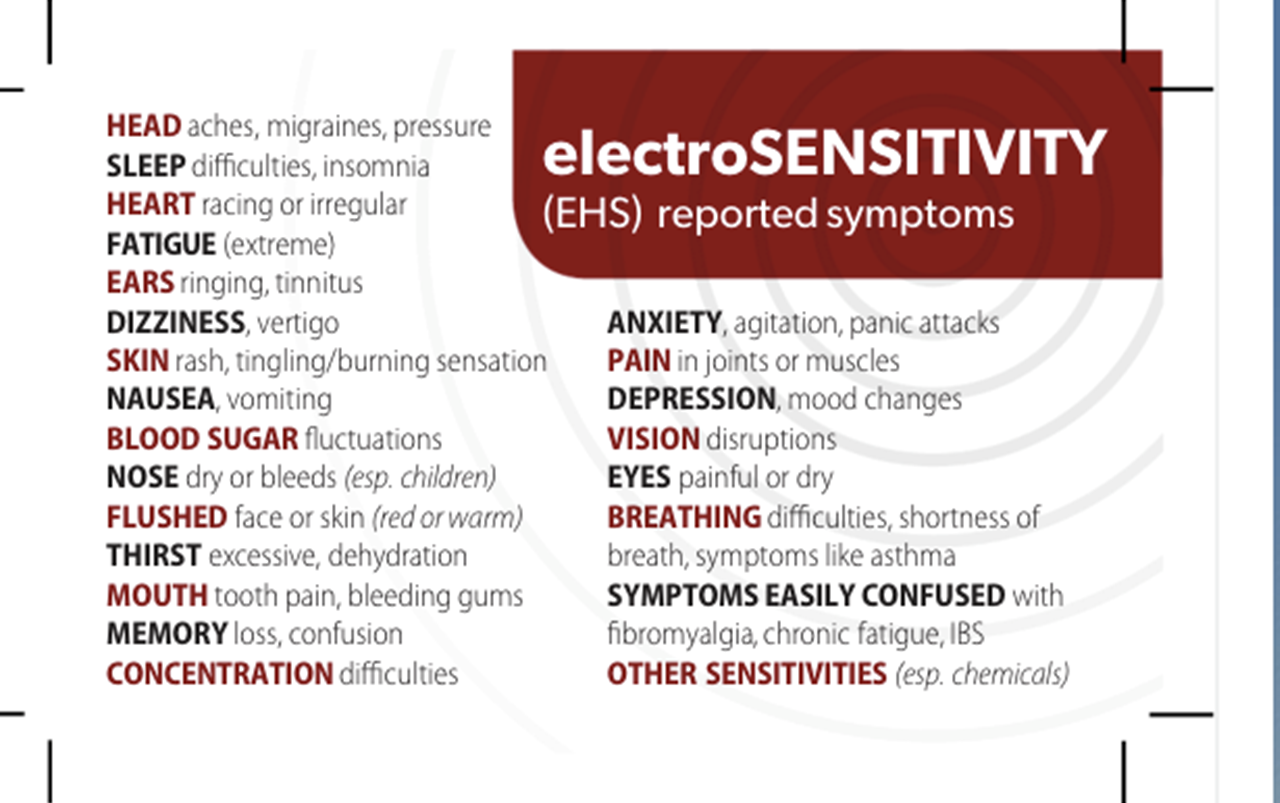Electromagnetic field sensitivity (EMF sensitivity) can be described as a situation where the person is a sensitive to electromagnetic fields around him. The condition isn't limited to environments that do not have electrical current, but it can affect those who have an open circuit, or who are in contact with electromagnetic field for prolonged periods of time. The Environmental Health Center Dallas has a comprehensive understanding of the factors that cause EMF sensitivity, and is able to assist patients with the symptoms. The center has the ability to perform tests to determine whether an individual is susceptible to EMF exposure. This can be done with the latest technology to measure heart rate variability.
IEI-EMF sensitivity is a symptom of emf exposure
Electromagnetic pollution and its magnetic fields that result from it have been implicated in the development of a variety of illnesses. The symptoms are often difficult to detect, and some people have reported a wide variety of symptoms. They could be the result of pre-existing conditions or a response to stress due to the possibility of exposure to large amounts of electromagnetic fields. Whatever the reason these symptoms can be extremely debilitating for those who suffer from them. However, the scientific community isn't certain of how prevalent the IEI-EMF sensitization syndrome is and the extent to which it is widespread.
It is not a symptom of electrohypersensitivity
While the symptoms of electrohypersensitivity and EMF sensitivity are similar, there are some key differences. Electromagnetic hypersensitivity can be misunderstood, and symptoms may vary. It is essential to obtain a proper diagnosis to understand the causes behind the condition and the possible treatments.
It isn't a sign of EHS

Although EMF sensitiveness isn't an underlying sign of EHS, it is often linked to the condition. In fact, some studies have suggested that the disorder is linked to environmental and genetic factors rather than a specific physical problem. Despite this, more research is needed to come to a definitive conclusion.
It can be perplexing
The signs of EMF sensitivity can be perplexing. Most EHS sufferers do not believe that their symptoms are due to a specific source. They seek medical help, but are unable to get a definitive diagnosis. It is possible that they might have an underlying mental disorder which can cause an increased feeling of helplessness and anxiety.
It can be scary
The effects of electromagnetic fields, also known as EMFs can be a nightmare. Some people report experiencing unpleasant symptoms when they are exposed to these fields, which are produced by devices like Wi-Fi routers and mobile phones. The symptoms can range in severity, however in extreme cases, individuals are forced to stay away from the use of fluorescent lighting and electronic devices. In extreme cases, sufferers may even withdraw from the modern world living in isolated areas known as "EMF-free areas".
emf sensitivity symptoms may aid in melatonin production
The most vital hormones that the body produces Melatonin is a hormone that is produced in the pineal gland. It is implicated in many physiological functions, including the regulation of circadian rhythm. However, emf sensitivity as a protective factor against non-ionizing electromagnetic fields has been challenged mostly due to the inconsistency between studies. Our understanding of the hormone's protection mechanisms is largely based on our knowledge of the mechanism through which it protects the body against the oxidative stress induced by RF/ELF exposure.
It may aid in autonomic nervous system issues.
Numerous studies have shown that EMF sensitivities can impact your autonomic nervous. Patients suffering from this condition could have altered autonomic responses and can experience digestive problems. There are https://click4r.com/posts/g/8886979/info-about-electromagnetic-field-sensitivity who have trouble digesting food properly , or pass out following a light portion. Other patients may notice changes in body temperature, and have heat intolerance. These conditions are usually due to other health issues, such as diabetes.
